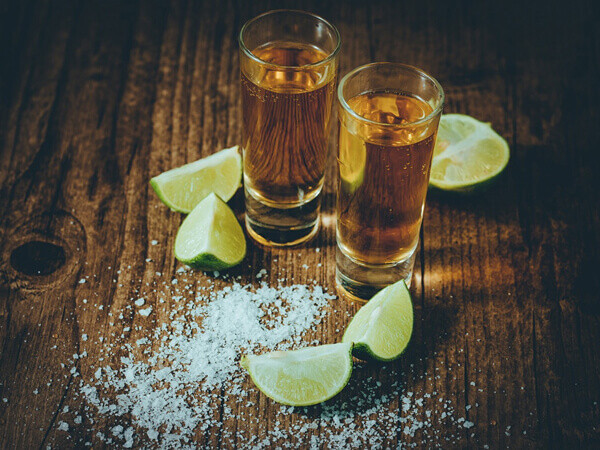
SEOUL, South Korea – Clase Azul, the ultra-premium tequila brand renowned for its exquisite taste and distinctive artisan decanters, is rapidly expanding its footprint in the South Korean market. The brand's increasing popularity is fueled by a growing domestic demand for high-end spirits and significant boosts from celebrity endorsements, particularly by martial artist and television personality Choo Sung-hoon (also known as "Sexyama"), whose affinity for the tequila has gone viral on social media.
A Brand Built on Heritage and Craftsmanship
Established in Mexico in 1997, Clase Azul, meaning "blue class" in Spanish, aims to represent the pinnacle of tequila. The brand distinguishes itself through a meticulous, traditional production process that emphasizes quality from cultivation to bottling. Clase Azul exclusively uses highly mature, approximately six-year-old blue agave plants, selected for their optimal sweetness. This commitment to premium raw materials is a cornerstone of its philosophy.
The harvesting of agave for Clase Azul is a labor-intensive process, with skilled workers manually removing the leaves to extract the "piña," the heart of the agave plant. These piñas are then slow-cooked for 72 hours in traditional stone ovens. This method, while more time-consuming than modern autoclaves or diffusers, is crucial for preserving the rich flavors and superior quality of the agave, contributing to the tequila's distinctive taste profile. Following this, the cooked piñas are pressed, and the liquid is fermented in stainless steel tanks using proprietary yeasts before being twice distilled in copper pot stills.
The Artistry of the Decanter
Perhaps the most visually striking aspect of Clase Azul is its unique decanters, each a handcrafted work of art. These ceramic bottles are produced at Clase Azul's own pottery workshop by approximately 2,000 Mexican artisans. Each decanter takes an average of 7 to 12 days to complete, showcasing intricate designs that reflect Mexico's rich artistic heritage, particularly its pottery traditions that flourished after the 16th-century Spanish conquest. The hand-painted details and unique shapes make each bottle a collector's item, embodying the brand's dedication to Mexican culture and craftsmanship.
This artisanal approach to both the spirit and its packaging contributes to Clase Azul's premium pricing, with bottles ranging from the high 200,000 KRW (approximately $200 USD) to a staggering 5.5 million KRW (around $4,000 USD) for more exclusive editions. For instance, the Clase Azul Reposado typically retails around $170-$200 USD, while limited editions or older añejos can reach into the thousands.
Expanding Palates: Clase Azul's Diverse Offerings
Clase Azul offers a range of tequilas, each with its own distinct characteristics. During a recent tasting event held on June 26th at a bar near Apgujeong Rodeo Station in Gangnam, Seoul, four of the brand's prominent expressions were showcased:
Clase Azul Plata: This clear, silver tequila is celebrated for its sweet notes and is often recommended as an accompaniment to seafood dishes with tangy sauces. It is known for its smooth and fresh profile, a pure expression of the blue agave.
Clase Azul Gold: Exhibiting a soft golden hue, this tequila presents complex aromas of nuts upon swirling. Its palate is a rich tapestry of flavors, including fig, ginger, and cocoa, indicating a blend that combines Plata with a special reposado matured in French oak casks and an Extra Añejo aged in American whiskey casks and finished in sherry casks.
Clase Azul Reposado: This expression offers inviting notes of cinnamon and vanilla, with a subtle hint of spiced cake on the finish. It is aged for eight months in American whiskey casks, which impart its unique hazelnut and vanilla flavors, resulting in an exceptionally smooth finish.
Clase Azul Añejo: Aged for 25 months, this Añejo delivers a full-bodied experience with a pronounced oak aroma. It pairs exceptionally well with richer fare such as red meats and aged cheeses. Notes of dried fruits and roasted nuts are intertwined with hints of caramel and chocolate, forming a sublime and luxurious taste. Beyond these, Clase Azul also produces Ultra, an extra añejo aged for five years, and various Mezcal expressions.
Celebrity Influence Fuels South Korean Market Growth
Clase Azul has seen its popularity surge in South Korea largely through organic word-of-mouth and, more recently, powerful celebrity endorsements. Without significant direct marketing efforts, the brand gained traction online, particularly after prominent figures like Choo Sung-hoon, Uhm Jung-hwa, and Lee Hyori were seen enjoying the tequila on social media. Choo Sung-hoon's YouTube video featuring the product garnered nearly 3.5 million views, significantly amplifying the brand's presence among Korean consumers. This phenomenon highlights the potent influence of Korean celebrities on consumer trends.
The brand's enhanced focus on the South Korean market aligns with a broader surge in tequila consumption. According to the Korea Customs Service, tequila imports more than doubled from 434 tons in 2020 to 721 tons in 2023. Import values also saw a significant increase, from $2,531 to $6,455 during the same period.
Clase Azul is now strategically intensifying its marketing efforts to capitalize on this growing demand. The brand aims to target a broad consumer base, from those in their late twenties to their forties, to solidify its leadership in the premium tequila segment. Future plans include participation in various festivals and events to further introduce the brand's unique charm and products to a wider Korean audience. This localized marketing push, combined with its established reputation for quality and the ongoing wave of celebrity interest, positions Clase Azul for continued success in the dynamic South Korean spirits market.
[Copyright (c) Global Economic Times. All Rights Reserved.]




























